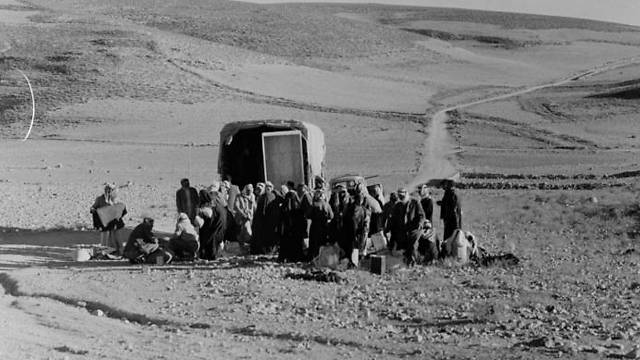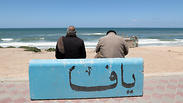
Palestinian refugees still hope to return as they mark Nakba day
As Palestinians mark their 'Nakba' or 'catastrophe', one Gaza fisherman - who said he was expelled with his family from Jafa 70 years ago - clings to a dream of returning to what he still regards his home, which he last visited in the 1970s
Looking out across the Mediterranean, the elderly Gaza fisherman sits on a bench adorned with just one word - Jaffa.
Mahmoud Al-Assi comes often to this blue bench. It is one of more than 120 such brightly-coloured concrete seats that line the Gaza seafront, each marked with the name of a town or village in Palestine, before Israel's creation in 1948.
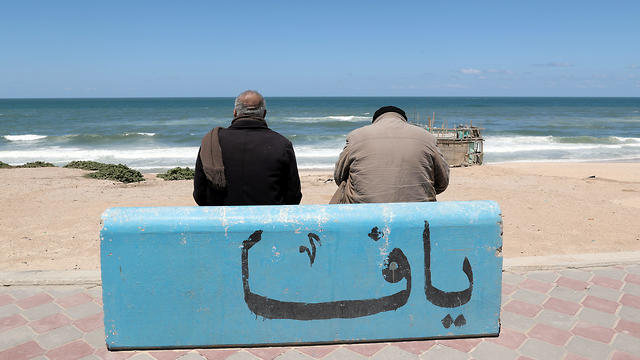
He comes especially around May 15, when Palestinians lament what they call the "Nakba" or "Catastrophe" - their defeat in the war of 1948-1949 that surrounded the birth of the modern state of Israel. It is traditionally marked the day after Israel declared independence in 1948.
Although Assi left Jaffa nearly seven decades ago as a child, he still regards it as "home".
Like many Palestinian refugees, he seeks the right of return to his former homeland. But successive Israeli governments have rejected any such right, fearing the country would lose its Jewish majority.
"I have never lost hope, and never will, even when I am dead and buried," he told Reuters as he looked out on the waters that bore him to safety when his father, a citrus merchant and fisherman, put him and his seven siblings on a boat to sail south from Jaffa to Gaza in 1950.
In his new life as a refugee in Gaza, those same waters provided a livelihood for him as he brought up his 18 children.
Two of Assi's brothers fled to Lebanon, where they lived and died as refugees.
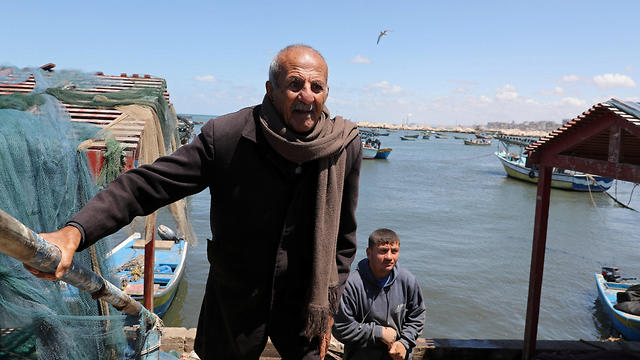
"I remember in 1948, when people were displaced, my father told my uncles: 'Don't leave here'", said Assi, who belongs to the same clan as Mahmoud Al-Assi in Gaza.
"He told them not to leave because the best place to stay is here. But they didn't listen and left to Lebanon," said Assi, who began his life as a fisherman on the day the fence came down.
In the early 1970s, when times were more peaceful and Gaza wasn't sealed off from Israel by checkpoints, blast walls and razor wire, Gaza fisherman Assi was able to travel the 60 kilometres (37 miles) up the Mediterranean coast to visit Jaffa and see his birthplace.
He saw his family's unfinished home had since been completed, and was inhabited, but couldn't bring himself to knock at the door and see who was living there.
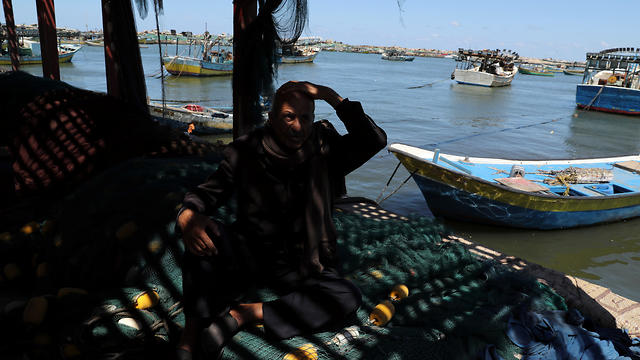
Looking out across the Mediterranean, the elderly Gaza fisherman sits on a bench adorned with just one word - Jaffa.
Mahmoud Al-Assi comes often to this blue bench. It is one of more than 120 such brightly-coloured concrete seats that line the Gaza seafront, each marked with the name of a town or village in Palestine, before Israel's creation in 1948.
"I didn't know whether Jewish people lived there or others. I wasn't able to enter, I just could not do it.
"I felt broken, when you can't enter your house. When it is your house and you can't reach it. I cried."
Palestinian historians say only 4,000 Palestinians remained in Jaffa after 1948, of around 120,000 who lived there before it became part of Israel.
Correction: The original version of this article erroneously stated that Tel Aviv was initially an Arab town named Tel ar-Rabeea'. Tel Aviv was founded in 1909 by Jewish inhabitants of pre-state Palestine.










